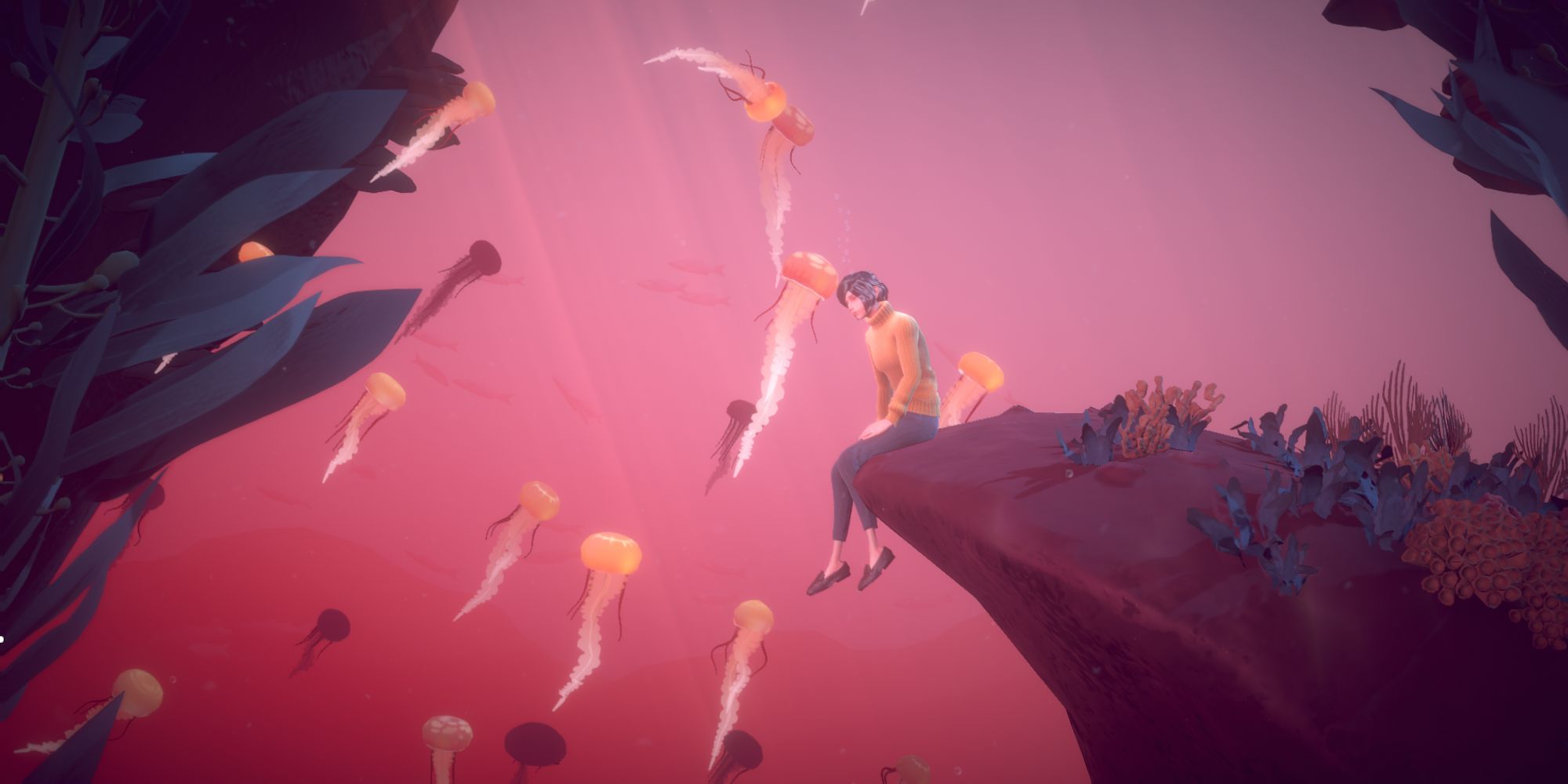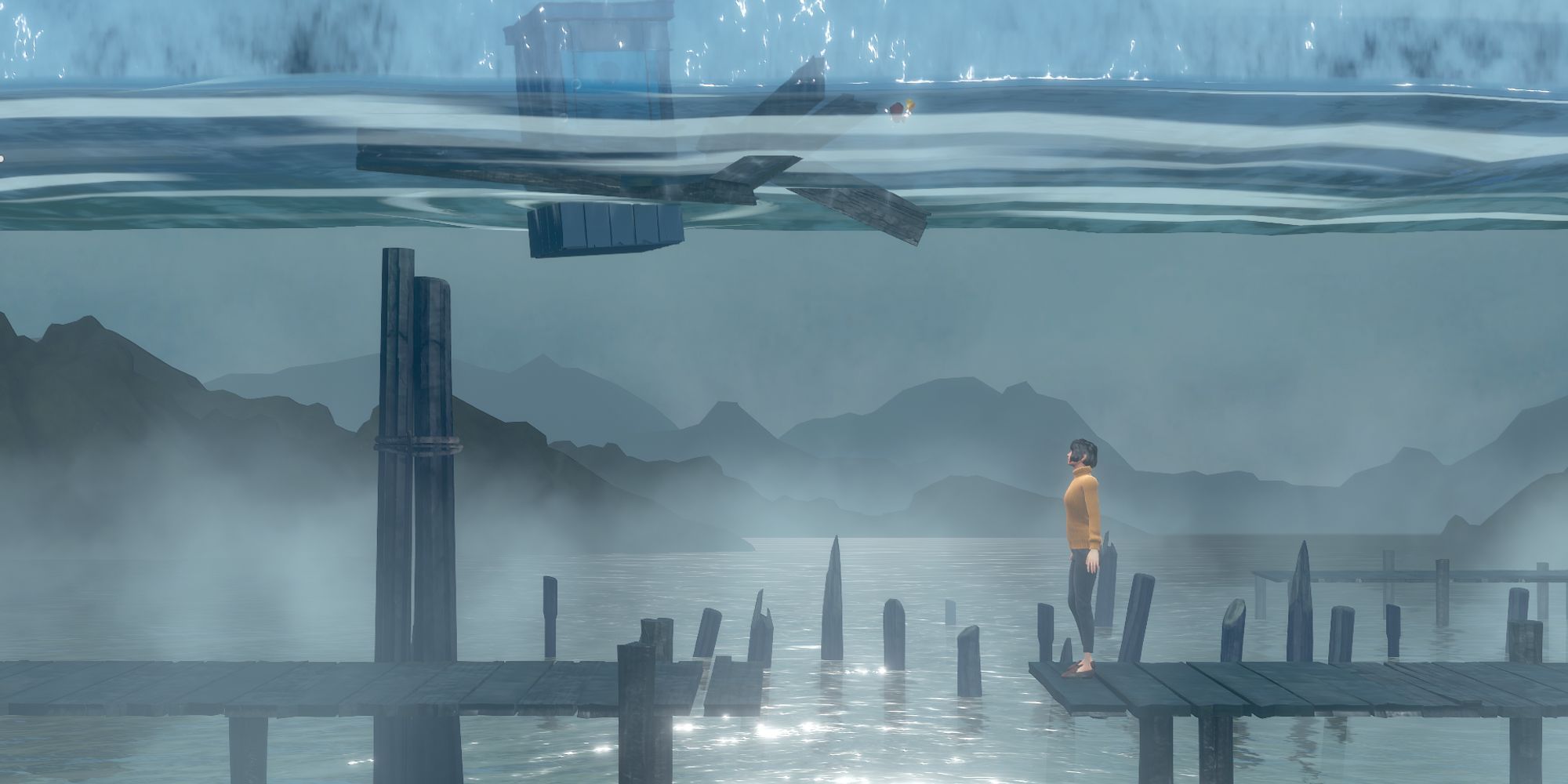A Memoir Blue, which launched last March, only takes an hour to finish. Given that one of my New Year's Resolutions was to beat 52 games in 2023 (or one a week), seeing the HowLongToBeat.com estimate pushed Cloisters Interactive's small, personal game right up to the top of my list.
I'm glad it did. A Memoir Blue didn't change my life, but it was a worthwhile way to spend an hour. I hope, in a world where Xbox Game Pass and similar services have made unconventional games more possible to make, that more developers borrow its less-is-more approach.
"Games should be shorter" isn't an argument that has usually been touted by consumers. When games cost upwards of $70 and you have limited funds to spend on entertainment, you likely want as much bang for your buck as possible. That's especially true given that gaming has, historically, been marketed to kids and teens, a demographic that often have more time than money. But it's a common argument from people in games media, like myself, who want to play as much as possible while still making time for friends, family, and other hobbies.
Obviously, a game that only takes an hour to complete is a godsend for adult fans of the medium who have time-consuming responsibilities. If you get home from work and are too tired to commit to watching a two-hour movie, a 20-hour game will likely seem even more daunting. A game like A Memoir Blue, which is about the same length as an episode of House of the Dragon, makes a compelling argument that you don't have to leave the medium behind as you age.
Xbox Game Pass gives shorter games the leeway to not need to justify their price tag on their own. A Memoir Blue retails for $7.99 on Steam, which isn't exorbitant, but it's difficult for devs to turn a profit with short games when Valve's PC platform allows returns within the first two hours. Game Pass makes it possible to take creative risks like this and still make money.
Those are the practical and commercial reasons that A Memoir Blue's length is good, but there are creative benefits, too. A Memoir Blue is about the relationship between a professional swimmer and her mother, and due to its length, the game can stay laser-focused on that. While longer games need to vary their environments in order to keep players engaged — think, Super Mario 64 including desert, lava, and snow levels or Half-Life 2 including the gothic horror of Ravenholm alongside the dystopian sci-fi of City 17 — A Memoir Blue can remain focused, throughout, on its exploration of water. It doesn't need to be all things to all people.
Similarly, the game never gets bogged down in mechanical complexity. On the title screen, you start playing by holding A and pressing down on the control stick to dunk a radio underwater, and variations of this action remain your only verb throughout the game's short runtime. The thing you're tugging on might be a medal the protagonist has won, the sliding glass door on a bookshelf, or the answer button on a smartphone, but A Memoir Blue has one thing it wants to do. This might make the game sound overly simplistic, but I prefer to think of it as focused. Cloisters Interactive knows what kind of game it is and isn't trying to make it something different.
A Memoir Blue's small scale means that it can tell a personal story, too. The game began life as director Shelley Chen's masters thesis project and Chen has talked about the ways that the game draws on her relationship with her mother. Though developers leave fingerprints, to one degree or another, on everything they touch, big triple-A games that need to achieve huge mass market sales can rarely be as autobiographical as A Memoir Blue. Though it didn't set the world on fire at the time of its release, I hope A Memoir Blue can serve as a template for other developers who want to make genuine personal statements. For now at least, Xbox Game Pass makes it possible for them to find an audience.
Source: Read Full Article

